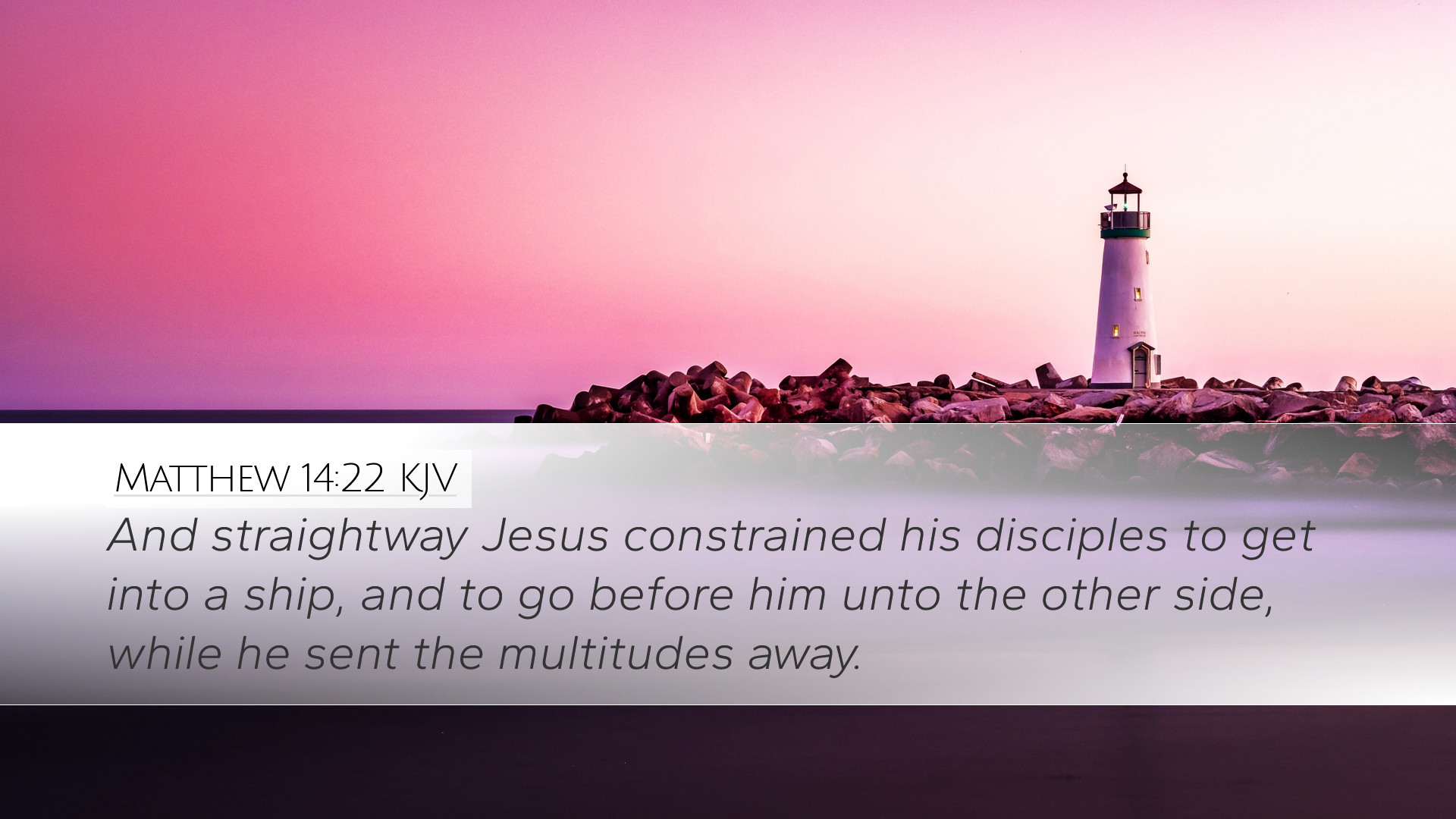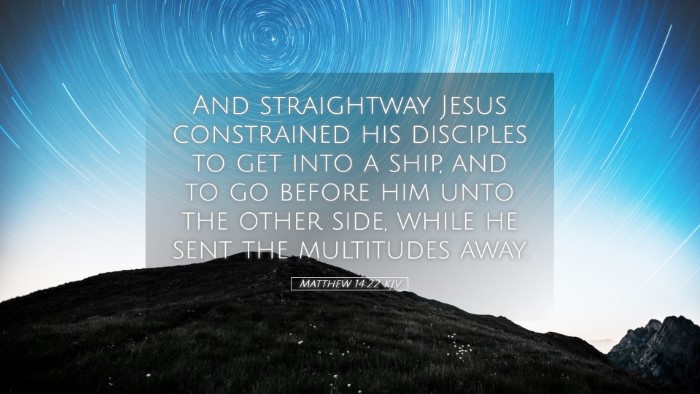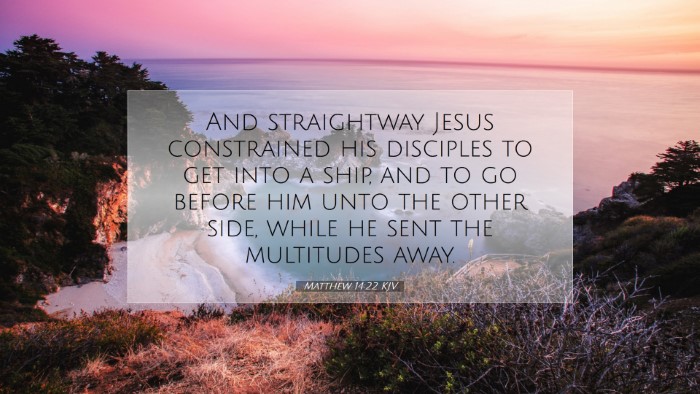Commentary on Matthew 14:22
Verse Context: Matthew 14:22 states, "Immediately Jesus made the disciples get into the boat and go on ahead of him to the other side, while he dismissed the crowd." This verse narrates a crucial moment where Jesus sends His disciples away following the feeding of the 5000.
General Themes
The verse highlights several important themes, including:
- Obedience to Christ: The disciples did as Jesus instructed, emphasizing the importance of obedience in the Christian life.
- Leadership: Jesus' command reflects His role as a leader who guides and directs His followers.
- Isolation and Reflection: The act of dismissing the crowd shows Jesus' need for solitude and prayer following His miraculous work.
Insights from Commentators
Matthew Henry
Matthew Henry emphasizes the authority of Jesus in His command to the disciples. He notes that "they immediately obeyed," underscoring the importance of being swift to act upon Christ’s words. Henry argues that Jesus’ insistence on having them leave was crucial for their spiritual growth and understanding. He stresses that obedience to Jesus often requires leaving our comfort zones.
Henry also draws attention to the significance of Jesus dismissing the crowd. He suggests that, after performing a great miracle, Jesus wanted to ensure that the people understood the truth of His mission rather than getting caught up in the excitement of a worldly king.
Albert Barnes
Albert Barnes provides further insights, particularly on the implications of the disciples getting into the boat. He explains that the boat symbolizes the Church, where believers are called to navigate the storms of life. Barnes notices that the disciples’ journey is emblematic of the trials and tribulations faced by Christians, with the sea often representing chaos and danger.
Additionally, Barnes interprets the term "immediately" as a demonstration of the urgency with which disciples should respond to Christ’s commands. This urgency reflects the nature of faith, which is often characterized by quick and decisive action in the face of uncertainty.
Adam Clarke
Adam Clarke offers a theological reflection on the sending away of the disciples. He argues that it serves as a preparation for the miraculous event that follows—the walking on water. Clarke points out that Jesus often tests His disciples’ faith by sending them into challenging situations, indicating that trials can serve to strengthen believers’ reliance upon Him.
Clarke also emphasizes the significance of the "other side," suggesting a symbolic representation of new beginnings and the transition from one state of being to another, often signifying a deeper revelation or understanding of Christ after the storms of life.
Application for Today’s Believers
The verse, Matthew 14:22, invites believers to reflect on their own responsiveness to Jesus’ commands. In a world filled with distractions and noise, it prompts an examination of how quickly one obeys Jesus' call to deeper faith and action.
Furthermore, this passage encourages understanding that trials and challenges are part of the journey of faith. Just as the disciples faced the winds and waves, today's believers often find themselves in tumultuous situations that test their faith. The experience of the disciples can serve as a reminder that Jesus sees and cares for His followers during their struggles.
Conclusion
Matthew 14:22 serves as a rich text for pastors, theologians, and students alike. It illustrates obedience, challenges in faith, and the understanding that Jesus is intimately involved in the lives of His followers. By reflecting on the insights from historical commentaries, contemporary believers can approach this passage with a renewed understanding of their own faith journeys and the challenges that come with following Christ.


